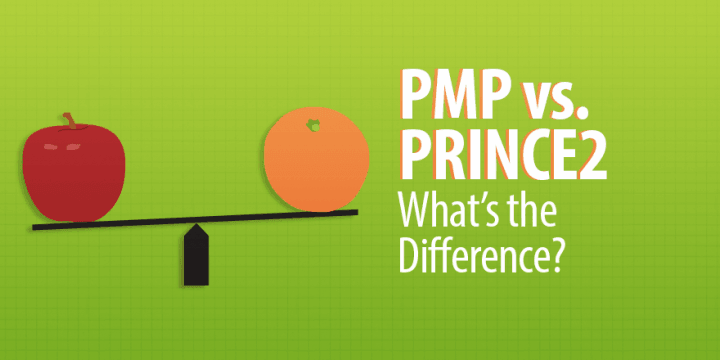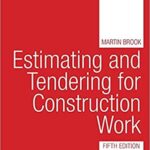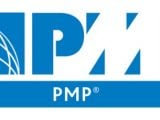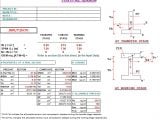PMP stands for “Project Management Professional” and is awarded by the Project Management Institute (PMI), USA.
On the other hand, PRINCE2 Projects In Control Environment certification is provided by a training institute which is affiliated with any of the five examined institutes certified by AXELOS.
Differences between PRINCE2 and the PMP
Before you start reading the differences between these two prestigious certifications, please bear in mind that the objective of both certifications is to equip you with enough knowledge and technique so you can complete projects successfully, though the approach is a little different.
Fundamental Difference
The basic difference between the PRINCE2 and PMP is that PRINCE2 provides you with a methodology. It tells you how to proceed and complete the project. To help you achieve your objectives, it also provides you with templates that you can use or modify according to your requirements.
Conversely, the PMP provides you with a framework for project management. It educates you about the tools and techniques used in every situation and leaves the decision up you to select the best option.
Acceptance
Both certifications are equally reputed and globally accepted.
However, in terms of preference, PRINCE2 is more well-known in the UK, Australia, and Europe.
On the other hand, the PMP certification is more well-known in the US, Canada, the Middle East, and Asia.
Eligibility Requirements
The eligibility requirements for PMP and PRINCE2 are different.
PRINCE2 has three qualification levels and for each level, the eligibility requirements are different.
The first level is PRINCE2 Foundation. Anyone can acquire this qualification, and no experience or education prerequisites are required for this qualification.
The second level is PRINCE2 Practitioner. To apply for the PRINCE2 Practitioner exam you must have passed any of the AXELOS approved certification exams, for example, PRINCE2 Foundation, CAPM, PMP, etc.
The third level is PRINCE2 Re-Registration. To maintain your PRINCE2 Practitioner qualification, you must pass the Re-Registration exam within 3 to 5 years of passing the PRINCE2 Practitioner exam.
Applicability
Though PRINCE2 was initially adopted by IT industries, it was later updated to be universally accepted.
As of now, the principles of PRINCE2 are universal in nature so you can apply them to a project of any size or kind. It does not matter whether it is small or large, or whether it is a construction project, IT project, or a product development project.
Likewise, the PMP framework can also be applied to all industries and all kinds of projects.
The skills earned by obtaining any of these certifications are transferable to all industries.
Qualification Level
As discussed above, PRINCE2 has three qualification levels:
- PRINCE2 Foundation
- PRINCE2 Practitioner
- PRINCE2 Re-Registration
PRINCE2 Foundation
This is the basic level qualification from PRINCE2. Here you can learn the basics of the PRINCE2 methodology and terminology.
To get this certification, you will have to pass a closed book exam. The exam consists of 75 multiple choice questions. The duration is 60 minutes and you must get 50% to pass the exam.
This qualification does not expire; it will be valid forever.
PRINCE2 Practitioner
If you are an experienced project manager and are managing projects in a PRINCE2 environment, you can try to obtain your PRINCE2 Practitioner qualification.
This qualification will give you an in-depth understanding of the relationships between the PRINCE2 elements, principles, themes, etc.
To apply for the PRINCE2 Practitioner exam you must have passed any of the certifications listed below:
- PRINCE2 Foundation
- CAPM
- PMP
- IPMA Level A
- IPMA Level B
- IPMA Level C
- IPMA Level D
You can apply for this qualification if you are a project manager, program manager, project management consultant, project team member, etc.
This is an open book exam and you can use the official PRINCE2 manual. The exam consists of 80 multiple choice questions. The duration of the exam is two and half hours and you must get at least 55% to pass it.
This qualification is valid for 5 years. To renew your qualification, you will have to pass another exam called “PRINCE2 Re-Registration” within 3 to 5 years.
PRINCE2 Re-Registration
In order to maintain your PRINCE2 Practitioner qualification, you must pass the Re-Registration exam within 3 to 5 years of passing the PRINCE2 Practitioner exam.
Failing to do so will withdraw your PRINCE2 Practitioner status.
The PRINCE2 Re-Registration exam is also an open book exam where you can use the official PRINCE2 manual. The exam consists of 30 questions. The duration is one hour and you must get 17 questions correct or 55% to pass the exam.
Now we come to the PMP certification.
There are no qualification levels in the PMP exam. There is only one PMP, although the PMI offers many other certification courses which are different than the PMP exam.
Eligibility
The eligibility requirements for the PRINCE2 were already discussed above.
The three eligibility requirements for the PMP exam are as follows:
Education
You should be either a bachelor’s degree holder (or global equivalent), or a secondary degree holder (high school diploma, associate’s degree or global equivalent). The degree or diploma can be in any discipline.
Experience
If you are degree holder, you should have at least 4,500 hours (about 3 years) of experience leading and directing projects, and if you are a diploma holder, you should have 7,500 hours (about 5 years) of experience.
Training
You must attend 35 contact hours of formal project management training. This training can be obtained from either a PMI Registered Education Provider (R.E.P) or non REPs.
Examination
The PRINCE2 exam is conducted by training centers affiliated with any Examinee Institute. The exam details for the PRINCE2 exam are provided above.
The PMP exam is conducted by Prometric Centers. The exam consists of 200 multiple choice questions, and the duration is 4 hours. The passing mark for the PMP exam is unknown though it is widely believed to be around 70%.
The cost of the PRINCE2 exam is not fixed; it varies according to the institute and the country. The fee for the PMP exam is fixed because there is only one center that conducts the exam and you pay money directly to the PMI.
Validity and Renewal
The PRINCE2 Foundation certification is valid for 5 years. The PRINCE2 Practitioner qualification is valid for 5 years, and to renew it you will have to pass another exam called “PRINCE2 Re-Registration” within 3 to 5 years.
The PMP Certification is also valid for 3 years and to renew it further, you will have earn 60 PDUs every 3 years under different categories.
Which Certification Should You Select?
This is not really a difficult decision. If you live in a country where PRINCE2 is more valued and accepted, you should obtain that certification.
If you are living in a region where the PMP certification is in more demand, you should choose that.
However, if you ask me, I would suggest you go for both. If you are planning to get the PMP certification, after passing it you should at least try the PRINCE2 Foundation course.
And if you are going for PRINCE2, try to get PMP certified after attaining your PRINCE2 certification.
There is absolutely no harm in having both certifications, and in fact your skills will be greatly increased, you will perform more efficiently, and the chances of successfully completing projects will increase. Also, this will make you a more viable candidate in the PMP profession.
In fact, the PMI also recommends PRINCE2, as per the PMBOK Guide Sixth edition: “this standard is a guide rather than a specific methodology. One can use different methodologies and tools (e.g., Agile, waterfall, PRINCE2) to implement the project management framework.”
Likewise, PRINCE2 also recommends the PMP certification. You can also see that the CAPM and the PMP certifications are among the many pre-requisite for the PRINCE2 Practitioner exam.
This shows that these two certifications complement each other rather than compete.
Conclusion
Although PMP and PRINCE2 are different certifications and follow slightly different paths, their objective is the same, i.e. to complete projects successfully. Choosing a certification is totally personal and depends on the geographic location you are in and the certification’s demand.
If you intended to take the PMP exam, I suggest you at least gain a good understanding of the PRINCE2 methodologies after passing the exam. Likewise, you must read the PMBOK Guide after becoming a PRINCE2 Practitioner.
What are your thoughts about these two certificates? Which have you obtained? Please share your thoughts and comments in the comments section.









